Filter by

Generational Tensions and Solidarity Within Advanced Welfare States
ABSTRACT This book explores generation as both a reference to family or kinship structures, and a reference to cohorts or age sets. The principal objective is branching out this two-part concept through studies of tensions and solidarity within and between generations of advanced and robust welfare states. Answering key questions using multiple disciplinary approaches, the book considers ho…
- Edition
- -
- ISBN/ISSN
- 9781003129592
- Collation
- -
- Series Title
- -
- Call Number
- -
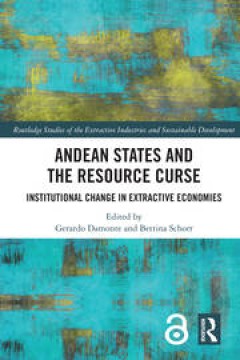
Andean States and the Resource Curse
ABSTRACT This volume explores institutional change and performance in the resource-rich Andean countries during the last resource boom and in the early post-boom years. The latest global commodity boom has profoundly marked the face of the resource-rich Andean region, significantly contributing to economic growth and notable reductions of poverty and income inequality. The boom also constit…
- Edition
- -
- ISBN/ISSN
- 9781003179559
- Collation
- -
- Series Title
- -
- Call Number
- -
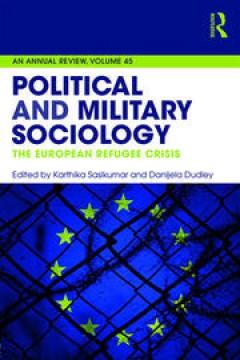
Political and Military Sociology
ABSTRACT This special edition of Political and Military Sociology: An Annual Review encompasses a full range of coverage on the European refugee crisis. Contributions include a focus on the characteristics and motivations of modern-day migrants, an analysis of the inconsistent standards displayed by the European Union, and the militarization happening across parts of Europe in response. The…
- Edition
- -
- ISBN/ISSN
- 9780429463105
- Collation
- -
- Series Title
- -
- Call Number
- -
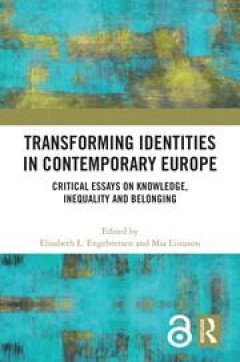
Transforming Identities in Contemporary Europe
ABSTRACT Interdisciplinary in perspective, this book explores contemporary struggles around ‘identity politics’ in Europe, offering a unique glimpse into contemporary tensions and paradoxes surrounding identities, belonging, exclusions and their deep-seated gendered, colonial and racist legacies. With a particular focus on the Nordic region, it provides insights into the ways in which peop…
- Edition
- -
- ISBN/ISSN
- 9781003245155
- Collation
- -
- Series Title
- -
- Call Number
- -

Theorizing Cultures of Political Violence in Times of Austerity
ABSTRACT After the multidimensional financial crisis of 2008, the member states of the Eurozone imposed a set of economic policies to save their economies. Socially unpopular cuts contributed to the occurrence of violent movements that both opposed austerity policies and created animosity towards the politicians who implemented them. Combining qualitative and quantitative comparative analys…
- Edition
- -
- ISBN/ISSN
- 9781351205757
- Collation
- -
- Series Title
- -
- Call Number
- -
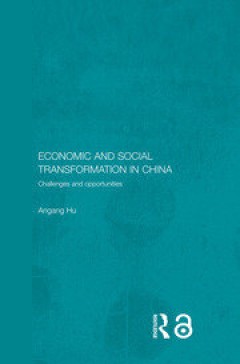
Economic and Social Transformation in China
ABSTRACT The Center for China Studies is among China’s most influential think-tanks, and its China Studies Reports are read at the highest levels of government. Now for the first time, the most important of these reports is collected in book form in English, providing a fascinating insight into the challenges and opportunities for Chinese development and the government’s thinking on econom…
- Edition
- -
- ISBN/ISSN
- 9780203970096
- Collation
- -
- Series Title
- -
- Call Number
- -

Environmental Policy and Air Pollution in China
This book systematically analyzes how and why China has expectedly lost and then surprisingly gained ground in the quest to solve the complicated environmental problem of air pollution over the past two decades. Yuan Xu shines a light on how China’s sulfur dioxide emissions rose quickly in tandem with rapid economic growth but then dropped to a level not seen for at least four decades. Des…
- Edition
- -
- ISBN/ISSN
- 9780429452154
- Collation
- -
- Series Title
- -
- Call Number
- 370

The Literary History of the Igbo Novel
This book looks at the trends in the development of the Igbo novel from its antecedents in oral performance, through the emergence of the first published novel, Omenuko, in 1933 by Pita Nwana, to the contemporary Igbo novel. Defining "Igbo literature" as literature in Igbo language, and "Igbo novel" as a novel written in Igbo language, the author argues that oral and written literature in Af…
- Edition
- -
- ISBN/ISSN
- 9781003017455
- Collation
- -
- Series Title
- -
- Call Number
- 370

Argentina's Economic Reforms of the 1990s in Contemporary and Historical Pers…
Why has Argentina suffered so much political and economic instability? How could Argentina, once one of the wealthiest countries in the world, failed to meet its potential over decades? What lessons can we take from Argentina's successes and failures? Argentina’s economy is - irresistibly - fascinating. Argentina's economic history - its crises and its triumphs cannot be explained in pu…
- Edition
- -
- ISBN/ISSN
- 9781315669625
- Collation
- -
- Series Title
- -
- Call Number
- 370
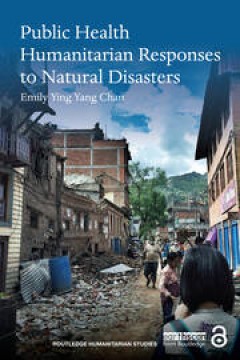
Public Health Humanitarian Responses to Natural Disasters
The pressure of climate change, environmental degradation, and urbanisation, as well as the widening of socio- economic disparities have rendered the global population increasingly vulnerable to the impact of natural disasters. With a primary focus on medical and public health humanitarian response to disasters, Public Health Humanitarian Responses to Natural Disasters provides a timely critica…
- Edition
- -
- ISBN/ISSN
- 9781315667218
- Collation
- -
- Series Title
- -
- Call Number
- -
 Computer Science, Information & General Works
Computer Science, Information & General Works  Philosophy & Psychology
Philosophy & Psychology  Religion
Religion  Social Sciences
Social Sciences  Language
Language  Pure Science
Pure Science  Applied Sciences
Applied Sciences  Art & Recreation
Art & Recreation  Literature
Literature  History & Geography
History & Geography